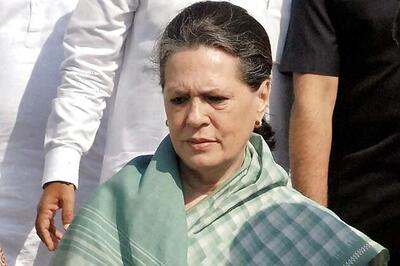
views
The overall Air Quality Index (AQI) in Delhi stands at 336, which is in “very poor” category as per SAFAR-India. With this, Delhi’s AQI has now been in “very poor” category for the fifth straight day.
The weather office has also forecast a shallow fog for Wednesday. The quality of air in the IIT Delhi region also remained in the very poor category with an AQI of 329. The quality of air at the Airport (T3) and Mathura Road was also in the very poor category, with an AQI of 339 and 362 respectively.
#WATCH | Light haze envelops Kartavya Path as overall air quality is in 'Very Poor' category in DelhiA morning walker says, "Since October, the air quality has worsened. I experience slight discomfort due to pollution during this period in the city." pic.twitter.com/Efgp0ioj3w
— ANI (@ANI) November 1, 2023
Meanwhile, Noida recorded an AQI of 391 (very poor) and Gurugram 323 (very poor).
On Tuesday, haze enveloped the national capital and its suburbs as the city’s 24-hour average Air Quality Index (AQI) was recorded at 359, the highest so far this season. It was 347 on Monday and 325 on Sunday, according to data shared by the Central Pollution Control Board (CPCB).
The AQI level had entered into ‘severe’ zone in some parts of the city on Monday.
An AQI between zero and 50 is considered ‘good’, 51 and 100 ‘satisfactory’, 101 and 200 ‘moderate’, 201 and 300 ‘poor’, 301 and 400 ‘very poor’, and 401 and 500 ‘severe’.
On Tuesday, the minimum temperature settled at 17.3 degrees Celsius, a notch below the normal. The relative humidity at 5.30 pm stood at 57 per cent.
Only Electric, CNG, or BS-VI Buses Allowed to Enter the State
In order to tackle air pollution and promote eco-friendly transportation, the Delhi government has issued a directive that from November 1, all buses originating from Haryana must run on electric, CNG, or BS-VI diesel. Furthermore, buses traveling from the NCR regions of Uttar Pradesh and Rajasthan will have to adhere to these stringent emission norms when entering the city from Wednesday.
Looking forward to July 1, 2024, this initiative takes an even more ambitious turn. From that date, all buses arriving in Delhi from any city or town in Haryana, Rajasthan, and Uttar Pradesh must exclusively be electric, CNG, or adhere to the BS-VI diesel standards.
This remarkable initiative, endorsed by the Commission for Air Quality Management (CAQM), is a testament to Delhi’s unwavering commitment to improving air quality by transitioning to eco-friendly transportation options.




















Comments
0 comment